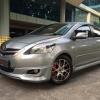Search the Community
Showing results for tags 'squeeze'.
-
https://asia.nikkei.com/Spotlight/Caixin/The-double-squeeze-on-China-s-sandwich-generation The double squeeze on China's 'sandwich generation' 'Little emperors' grow up to be overburdened caregivers to parents and children Yin Fan is a single mom in her late 30s. When she was pregnant with her daughter, her father living in another city was diagnosed with the nervous system disorder multiple system atrophy and quickly lost his ability to walk. As the family's only child, she had to take care of her baby and her father alone. Yin belongs to China's first generation under the old one-child policy, those born between 1976 and 1985, also known as the "sandwich generation." Now they are trapped with the obligations of caring for their children and aging parents, putting them in financial and emotional binds. China has more than 170 million such sandwich generation families, according to Feng Xiaotian, a demographic sociology professor at Nanjing University. Growing up in the 1980s, they were often called "little emperors" as they got all the attention at home. But now they have become the most burdened generation, said Mu Guangzong, a professor at the Institute of Population Research of Peking University. In the past three decades as this generation grew up to have their own families, China has experienced a profound shift into an aging society with fewer children. From 1990 to 2021, Chinese people's average life expectancy increased from 68.6 years to 78.2. The proportion of people over 65 more than doubled to 13.5% from 5.3%. China's birthrate dropped below 1% in 2020, and the country is expected to enter a period of negative population growth by 2025. With parents living longer and with couples having their own children at an older age, the challenges facing sandwich generation families affect not only their own lives but also have ramifications for the rest of society. A family of three generations in Tianjin on July 6, 2016. Because of high housing costs, many Chinese urbanites cannot afford to bring their aging parents to the city they now call home. Expensive child care China implemented the one-child policy in 1980 to put a brake on population growth and facilitate economic expansion in a planned economy that faced severe shortages of capital, natural resources and consumer goods. The authorities eased the limit in 2016 to allow each family to have two children. Last year, after a new census showed the birthrate had stalled, China raised the cap to three children. Money, time and energy deficits are the most common worries sandwich generation families face. Childbirth, especially of a second child, is often the starting point of such crises. "This is the most stressful time for me," said Liu Li, a 37-year-old employee of a state-owned enterprise. With his wife working at a bank, they take home 20,000 yuan to 30,000 yuan ($2,900 to $4,300) each month, a decent middle-class income in a small town. But since the birth of their second child, they live paycheck to paycheck. In today's China, more and more families with stable jobs and reasonable savings are trapped in financial problems, time crunches or health difficulties due to the burden of raising children, said Zang Qisheng, a professor at Soochow University. The average cost of rearing a child until the age of 18 was 485,000 yuan in China in 2019, which was 6.9 times China's per capita GDP, much higher than in many developed countries including the U.S., France, Germany and Japan, according to a report by the YuWa Population Research Institute. The think tank was established by a group of demographers and economists, including economics professor Liang Jianzhang at Peking University. Child-rearing costs are even higher in large cities, reaching more than 1 million yuan in Shanghai and 969,000 yuan in Beijing. The pressure of raising children is mainly an economic matter, while caring for the elderly is more of a time and energy issue, said Wang Guangzhou, a researcher at the Institute of Population and Labor Economics at the Chinese Academy of Social Sciences. In the next decade, as the parents of the first generation of single-child families enter their 70s and 80s, the elder-care pressure will grow more prominent, he said. People walk by a big housing ad in Nanjing, Jiangsu province, on May 8, 2014. With the trend of late marriage and late childbearing, the double pressure of caring for the elderly while raising young children is more likely to come at the same time. According to the 2019 China General Social Survey, 27% of urban families in China include members who are 60 or older as well as children who are 14 or younger, meaning that one in four families faces this double pressure. Children first As it cares for young children and elderly parents, how will the sandwich generation allocate the family's money, time and human resources? "Children first" was the conclusion in a study based on a telephone survey of 2,439 urban families in the provinces of Guangdong, Jiangsu and Shaanxi by Sun Yat-sen University and Guangzhou University. The sandwich generation usually shows a strong sense of responsibility and urgency for its children, said Zhong Xiaohui, a professor at Sun Yat-sen University. However, in terms of elder care, most families lack clear planning and often have to respond on the fly when a parent falls seriously ill. There is a sharp contrast between their rich knowledge of childhood development and their relative ignorance of the elderly, the survey found. Children become the center of families, and parenting styles tend to be intensive or even excessive, said Yang Juhua, a professor of ethnology and sociology at Minzu University of China. As family resources are limited, it is often the elderly who make concessions, Yang said. Not only parents but also grandparents often actively shift resources to the children. To cope with the high costs of child care, the sandwich generation normally needs help from parents. Yang Mo, 61, came to Beijing from her hometown in Anhui province after retirement to help her daughter take care of her newborn. She spends 12 hours a day from 7 a.m. to 7 p.m. feeding, bathing and playing with the baby as well as cooking and cleaning before handing the child off to her daughter after work, Yang told Caixin. "I dare not get sick," she said. "Who would take care of the baby?" There were about 42 million infants under the age of 3 in China in 2021, and the nursery enrollment rate was only about 5.5%, according to the National Health Commission. The big gap means most families with infants have to rely on grandparents for child care. Child care costs account for nearly 50% of the average Chinese family's income, and 80% of children under the age of 3 are cared for by grandparents, said Yang Wenzhuang, director of the commission's Department of Population Surveillance and Family Development. As China encourages people to have more children to counter the lowest birthrate since the 1950s, this child care model of relying on grandparents might no longer work. Several studies have found that grandparents are less involved in the care of their second grandchild than the first. More and more elderly people have their own plans for retirement and are not willing to devote themselves to caring for grandchildren, said Yang at Minzu University of China. Even if they want to, aging makes them unable to, the professor said. Without grandparents' help, the burden on the sandwich generation increases, which in turn makes these families unwilling to have more children. In a 2016 survey, 60.7% of mothers who already had one child said they didn't plan to have a second because of a lack of child care. From caregivers to care receivers The more serious challenge is what happens when grandparents are not only unable to help but transition from caregivers to needing care. For the sandwich generation, the worst scenario is that their parents suddenly become severely ill or disabled, physically or mentally. "It's not only expensive but also very stressful on your mind," said Wang at the Chinese Academy of Social Sciences. "It's not like raising a child, with hope growing every day. Once an elderly person can't take care of oneself in daily life, the hope is fading every day." According to an estimate by the World Bank, China is expected to have 93 million people over the age of 75 by 2030, accounting for 6.6% of the population. By then, there will be more than 77 million disabled elderly in China, who will experience 7.44 years of disability on average, estimated Zheng Xiaoying, director of the Institute of Population Studies at Peking University. A nursing home in Jincheng, Shanxi province, on Aug. 17, 2022. Empty nesters Can a single child afford the costs of caring for two elderly parents? According to the 2020 census, 70% of the urban elderly population's income is from pensions and 17.3% from family support. Parents of the first generation of one-child families living in cities thus generally come close to supporting themselves financially, and their children's burden is not obvious, said Wu Haixia, a researcher at the Institute of Population Studies of the Chinese Academy of Social Sciences. But elderly people living in rural areas are not so lucky. In 2019, the annual pension and other income of the rural elderly was about 3,500 yuan. Most rural elderly people have to rely on family support and continue to work to get by. With the reduction of family size, the proportion of family support the elderly can rely on has been decreasing, said Nie Riming, a researcher at think tank Shanghai Institute of Finance and Law. All the data show that the rural regions are the "disaster areas" in China's aging population challenge. Nearly half the nation's over-65 population live in rural areas, according to the latest census. The trickier question is who will take care of the rural elderly. A 2014 survey by researchers at Renmin University of China found that nearly half of rural elderly were empty nesters, and 12.54% of them needed various degrees of care. The main reason for the high proportion of empty nesters in rural areas is that a large number of young and middle-aged people leave their hometowns to work in cities. When these living-alone elderly become seriously ill, half of them do not seek medical treatment because of mobility problems, being unaccompanied or because they live too far from hospitals -- in addition to financial reasons -- according to a survey by Wu at the Chinese Academy of Social Sciences. Empty nesters in cities face similar difficulties. According to Feng Xiaotian at Nanjing University, the proportion of empty nesters among the parents of first-generation only children in cities was about 60%, based on a 2015 national survey of 12 cities and a 2016 survey of five towns in Hubei Province, If a married couple's parents live in two different cities, that makes it even harder to care for all four parents at the same time, said Nie at Shanghai Institute of Finance and Law. Such cases are particularly common in megacities such as Beijing and Shanghai, where high housing cost is the first problem when children want to bring their parents to live with them, Nie said. Even for those who are able to live with their elderly parents, inadequate care is a common problem. The primary caregivers for 60% of the disabled elderly in urban areas in China are their children, but more than half of them receive care for less than 36 hours a week, according to a 2019 survey by Li Yunhua and Liu Yanan at Wuhan University's School of Politics and Public Administration. Meanwhile, it is difficult for families to find affordable professional care for disabled elderly, Zhong at Sun Yat-sen University and Peng Minggang at Guangzhou University said in a report. China provides few public elderly care services for the average family and few support measures such as subsidies and tax rebates to help families purchase market-oriented care services, they said. "Honestly speaking, it is almost a problem without a solution for the generation of only children to care for their elderly parents," a sociology scholar told Caixin. "This is the sorrow of our generation, and our parents." An elderly paralyzed person in bed at a nursing home in Shaoguan, Guangzhou province, talks to a caregiver in March 2022. Turning old themselves As the public discussion focuses on child and elder care, the needs and risks of those in the sandwich generation themselves are often overlooked. To care for their parents, many people have to quit their jobs or choose a lower-paying job with more flexibility. As a result, they suffer a sharp drop in income and the loneliness of social disconnection, Huang Chenxi, deputy dean of the School of Social Development of East China Normal University, found in interviews with caregivers for disabled and mentally ill elders in Shanghai. Elder care reduces rural women's access to nonfarm jobs by 13.5%, a negative effect that will continue to expand as the intensity of elder care increases, Fan Hongli and Xin Baoying at Shandong University of Finance and Economics found in a study. By the time their parents are in their 80s and 90s, the sandwich generation will be in their 50s and 60s. "When they bury their parents, who can they rely on?" asked Jin Jun, a sociology professor at Tsinghua University. In 2020, China's social insurance fund, which includes the basic state pension funds run by provincial-level governments, reported the first annual deficit on record. The deficit is expected to grow to 11.28 trillion yuan by 2050, when the peak of the retirement of the sandwich generation hits. Scholars have long suggested measures by the government to ease the burden on the sandwich generation. Ma Chunhua, a professor at the Institute of Sociology of the Chinese Academy of Social Sciences, called for the government to play a more active role in providing child care. "Children should be taken care of jointly by the whole society so they can grow up to take care of the whole society in the future, so as to maintain the overall operation of the economy and the continuity of the social security system," she said at a forum on the aging society. Supportive policies can't be achieved overnight, said Chen Jia, a professor at the School of Sociology of Shanghai University. For example, it took decades for Japanese families to accept a long-term care insurance system and fully reap the benefits of the system, Chen said. At the request of the interviewees, the names of Yin Fan and Yang Mo are pseudonyms.
- 69 replies
-
- 3
-

-
- generation
- sandwich
-
(and 5 more)
Tagged with:
-

Red light-beating lane-cutting bully owned by car camera and internet!
chitchatboy posted a blog entry in MyAutoBlog
Now this is a new level of road bullying. Check out this new post from SG Road Vigilante where the camera car is being harassed by a Toyota Premio from Geylang all the way until the end of the Thomson Flyover on the PIE towards Jurong. The incident happened on 10th of June, 2020 and we all know that there can be no smoke without fire. Coming out from Lor 19 Geylang and merging into Geylang Rd, the camera car must have honked the offending Premio as the Premio appears to be stopping in the middle of a busy and messy four lane road for no reason. In the Premio driver's defence, he could have trying to pick up a passenger as the car is under the Private Hire scheme and can be seen using his hazards. Unfortunately for him, he chose to lose his temper when he was honked at by the camera car, a Toyota Noah/Esquire, which could very likely be another Private Hire vehicle rushing to pick up/drop off another passenger. As we can see, in the process of intimidating the white Toyota MPV camera car, the Premio driver drove through a red light along Geylang Rd. From the various submissions of video to the SGRV's page, the whole event only ended when both of them drove past the Thomson Flyover, with the Premio driver speeding off after wildly gesturing at the camera car. Naturally the comment sections were full of unkind words for the "ah beng" in the Premio... So do you think the Premio driver is in the wrong? Or is there another side to this story? Let us know in the comments below! -
Hi was wondering how to deal with motorcyclist who squeezed behind when vehicle reversing into lot suddenly? Before reversing I checked there was no vehicle/ motorcycle around. Then with hazard light on was reversing and this motorcycle suddenly appeared and squeeze in the gap between the lot and other stationary cars parked beside. Good thing he managed to do it skillfully and no one was hurt I horned to him and he showed middle finger.
-
http://en.rocketnews24.com/2013/04/21/chin...ng-his-scrotum/ On 8 April, the trial began for a woman accused of killing a man in an excruciating fashion. It all started on 19 April of the previous year. The suspect was picking up her child when she parked an electric bike in front of a shop. The man running the shop came out and shouted
-
Squeezing breasts can stop cancer Squeezing breasts could prevent cancer, best study ever says 21 hrs ago Getting to second base, the holy grail for hormonal boys, is now science: New research has shown that squeezing breasts could prevent malignant breast cells from causing cancer. This doesn’t give pervy dudes license to grope you on the subway, ladies, but it does mean boob-grabbing should be a regular part of your self-care routine (yes, absolutely try it DIY-style). Experiments found that physical pressure led cells back to normal growth patterns, and that even after compression was no longer applied, the malignant cells stopped growing. Spread the word, boob-lovers of the world. [source]
-
Today wed close to weekend liao...post another tiko thread for our bros here.. wonder if we can get the same campaign here? But don't get those >40 Mediacorpse actress for us ok.. [laugh] 日本籌款節目 捐錢揉AV女優胸 上週末,日本一綜藝節目《24小時TV 用愛拯救地球2012》中,名為「用揉胸來貢獻社會」的特別活動在東京新宿區直播會場舉辦。 凡捐出1000日元以上的善款,就可以讓雙手和AV女優的巨胸來一次親密接觸。這是《用愛拯救地球》系列節目的慣例活動,今年已經是第10次舉辦,本次可以選擇的AV女優共有10位,當然揉胸者必須是成年人,而且下手前要先消毒。 據報道,截至26日下午6時活動共有捐款者4690人次,募集善款420萬4836日元,來場者和捐款都是去年的兩倍,甚至還有前後共捐款20次。 Japan Link
-
KNN this type of father really should kena . The daughter already uncomfortable liao kena sanwiched then monster father molest her... should kena by the taiwan government.... Duno why cannot embed...only the link here. http://www.facebook.com/video/video.php?v=210168765687173
-
Need 20 skinny babes for my team! Anyone know where got kangtau to get skinny gals? Need them on 30thApril(saturday) and 1stMay, to squeeze into a small car with me. To win the car. If can win, we will share the car. Either rotate each drive one week, or sell it away and share the profits! If never win, then take it as a fun event! I have some plan to make it a success. 1)Oil will be smeared on the bodies to make it easier to slide and squeeze inside the car. 2) For the above, means only t-shirt and shorts, or bikini allowed in my team members. 3) Preferable body height ~1.6m and weight 45kgbelow. PM me if you got kangtau. Hoping to win this contest! http://www.thecathay.com.sg/nissanchallenge/
-
as above...for orthopaedic use to strengthen wrist and fingers power... thanks...
-
Business Times - 29 Mar 2008 Parking squeeze may take shine off new buildings Rules vastly reducing carpark lots in new office buildings and malls are poised to bite By UMA SHANKARI (SINGAPORE) New office buildings and shopping malls coming up in the central areas of Singapore - especially in new downtown Marina Bay - are likely to feel the full force of existing rules limiting the number of parking spots allowed for each building. And with a whole slew of commercial buildings nearing completion over the next few years, a severe shortage of carpark lots is imminent. New 'white' sites, such as the Marina View land parcels, get just one carpark spot for every 425 sq m - or 4,575 sq ft - of commercial space. White sites can be developed into a combination of uses. Developers are allowed to provide more spots, but at the expense of giving up office or retail space. As yields for commercial space are significantly higher than those for carpark lots, most will not do so. What this translates to is quite startling - a company that takes up one entire floor in Marina Bay Financial Centre (MBFC) with a large floor plate of 25,000 sq ft could be entitled to just six carpark lots. Similarly, in a medium- sized building, a company occupying an entire floor - or some 10,000 sq ft of space - will get just two parking spots. And for the upcoming mega office building on the Marina View site, this means that the 1.7 million sq ft of office space the owner is required to provide would entitle the development to around just 380 parking spots. While the rules have been in place for all new buildings since May 2002, the impact has not really been felt so far because in the old central business district (CBD), an excess of carpark lots in older buildings make up for the shortfall in newer ones. Golden Shoe Car Park and Market Street Car Park also provide some much-needed supply. But for new downtown Marina Bay, there will be no such buffers. Buildings in the area will mostly all be new - which means that they will not have excess carpark spaces. 'The ruling is a bit harsh, especially if you look at all the big projects coming up in Marina Bay,' said one local developer. 'Those buildings will have thousands of workers, and only a few hundred carpark lots each.' Singapore is trying to attract more financial institutions, which means that more professionals from the banking and financial services sectors are expected to relocate from abroad. But some of them may find that they cannot drive to work, the developer added. Macquarie Global Property Advisors' Marina View development - which combines two sites won in government land tenders - is one building that will likely be hit by the shortage, industry players said. The project is required to provide some 1.7 million sq ft of office space. MBFC, on the other hand, is expected to fare slightly better. Although the building is a white site and therefore subject to the 'one carpark lot for 425 sq m of commercial space' rule, it also has 'hub status', which means that it is allowed to have slightly more carpark lots without having to sacrifice its commercial gross floor area (GFA). But while Marina Bay will likely be the first to be hit, the existing CBD is also going to face the same problem in the future, market watchers said. 'Right now, the CBD is managing,' said Nicholas Mak, director of research and consultancy at Knight Frank. 'But if developers continue tearing down and then building new buildings, then we will have a problem.' This is because new projects on the sites of old buildings are also subject to the newer guidelines. For some of these buildings, the number of parking spots will be reduced from one for every 400 sq m (4,306 sq ft) of office space to one for every 425 sq m (4,575 sq ft). Parking space was a lot more liberal in some older buildings. Adding to the woes of drivers is also the impending loss of Market Street Car Park. CapitaCommercial Trust (CCT) recently said that it has been granted planning permission to redevelop the building into an office tower. Other than office buildings, any upcoming new shopping malls, hotels, cinemas, theatres, restaurants and bars will also be affected. The impact will be greatest in the central areas, but are also being felt elsewhere - especially for white sites. A retail development slated for a plum white site above Serangoon MRT Station will have only slightly over 200 carpark spots - which Danny Yeo, Knight Frank's deputy managing director, said would be a 'tricky situation'. The mall has a maximum permissible GFA of 942,132 sq ft. By contrast, Singapore's now-largest suburban mall Causeway Point has a GFA of 629,160 sq ft of GFA and 915 carpark lots. Even then, it gets 'pretty crowded' during the weekends as the mall is the only shopping centre in Woodlands, a spokeswoman for Frasers Centrepoint said. Industry players believe the squeeze is part of the government's move to push more people to use public transport. But developers point out that the shortage of parking spaces will come at a time when the car population is climbing. BT understands that for the Serangoon site, analysts recommended that the authorities provide close to 1,000 parking spots. But despite this, only over 200 units were allowed. 'Shopping centres without enough carpark lots will suffer,' said one property analyst. 'There will be a complete change in shopping patterns.' When contacted, the Land Transport Authority (LTA) said it currently regulates parking by stipulating the minimum number of car parking lots to be provided based on the given floor area of a development. 'Developers may build more carpark lots but they have to balance them with the opportunity cost of the additional space.' Copyright
-
I currently own a car that is still under the Agent's Warranty. I personally feel that the Agent is charging a really high price for normal servicing, I think that they are giving out the 3 years warranty so they can suck your blood dry. I feel like they are squeezing my balls by saying that the warranty will be voided if you do this or that. Now my question is this, if I do my servicing outside before the warranty ends, will it affect my car resale value when I sell it after the warranty period? Do used car dealers also look at the service records even if I sell the car after the warranty period? Anyone with experience on this issue? Used car dealers?

.png)




